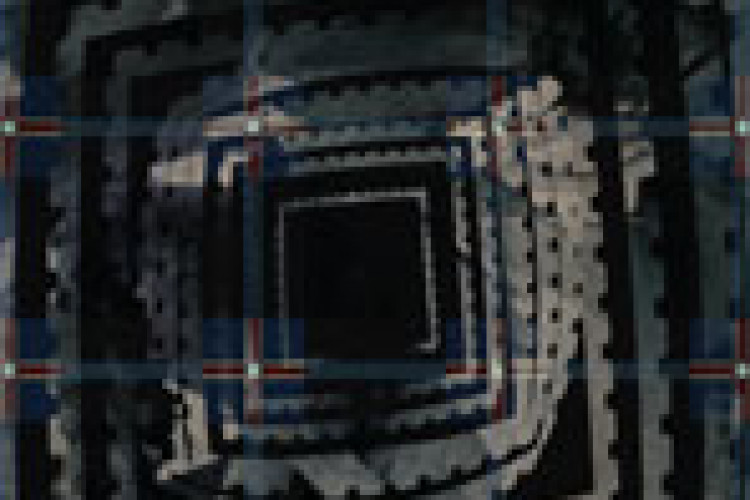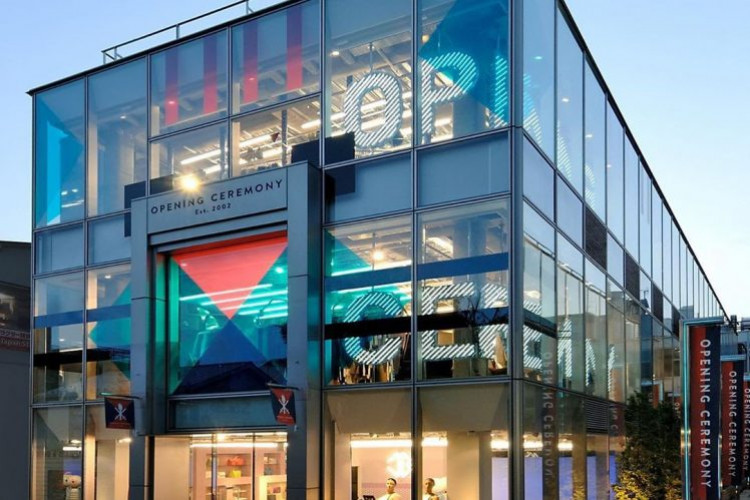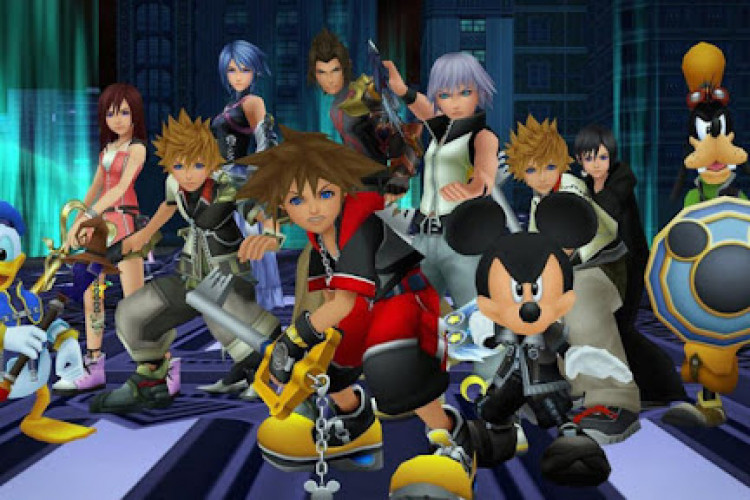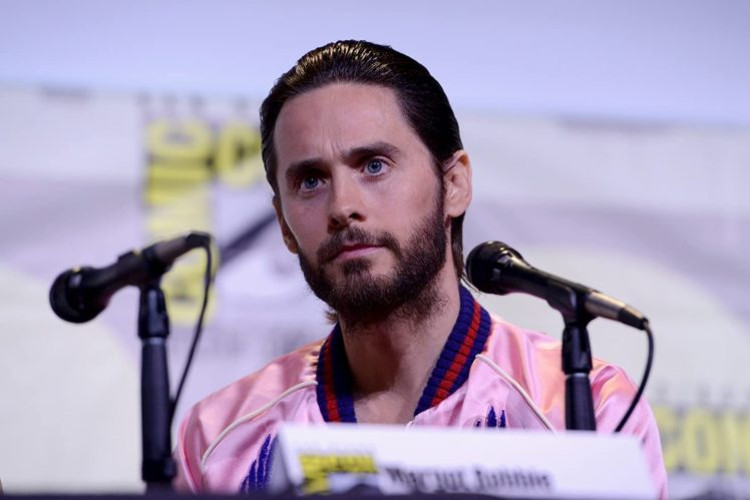Environmentally Aware with Nova Ruth
Muhammad Hilmi (H) talks to musician Nova Ruth (N).
by Ken Jenie
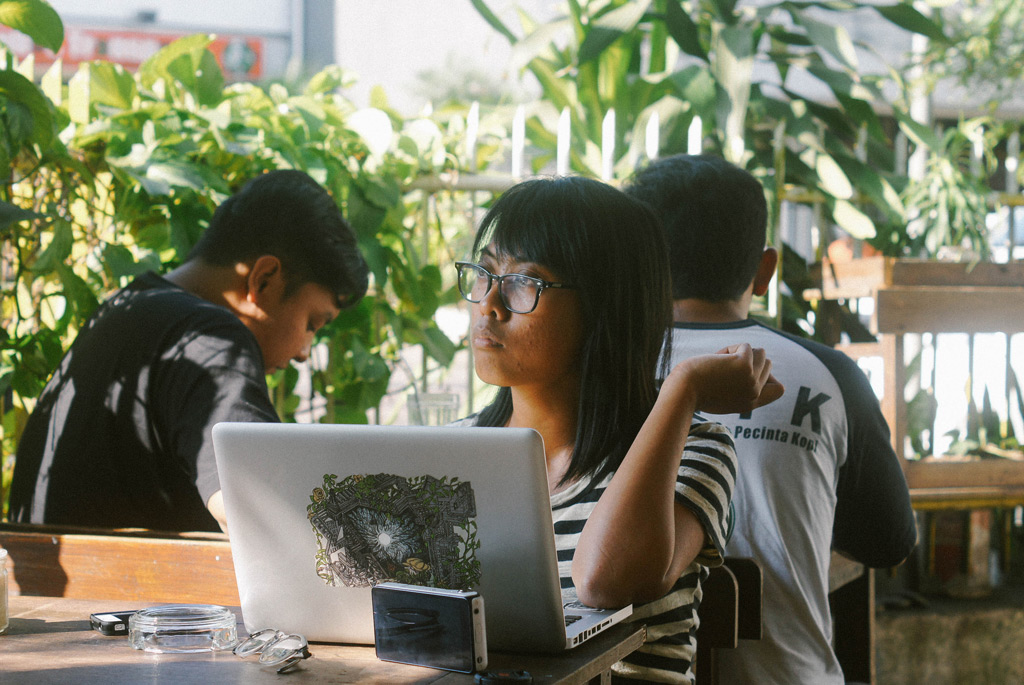


H
How does it feel to be the daughter of Totok Tewel, a Kantata Takwa, Swami, and Elpamas personnel?
N
There was a moment when I felt depressed because people only acknowledged me due to my father being a living legend. People would say “Oh, of course you’re doing music. You have the blood” Followed by, “I bet you play guitar as good as your father.” Fact is, it’s a big NO. I tried to ignore it as much as I could until one day I reached a point where I realized he isn’t a detriment at all, and that I am proud to be part of his life. Even though he’s living far away from me he had a role in making me who I am today. In fact, I have listened to his music since I was born, and even my mother encouraged me to listen to his work although they separated a long time ago.
H
You told kindleproject.org that you were “born of two of the strongest people on earth.” could you elaborate?
N
My mother and father are more than just parents, they are also good friends of mine. Not every parent is strong enough to be good friends with their children, and they managed to make me feel this way. I’ve never been a parent, but based on the stories and experiences around me, I see that it takes courage and strength to be at the same level with your children.
H
Any stories on how what drew you into music in the first place?
N
I knew that I could sing since I was six years old. I easily absorbed the environment and influences around me. I got into new and different things easily. I grew up in between two religions so I had a chance to learn the music of both – I sang in church, I sang and read the Qur’an too. I even learned how to sing Javanese tembang in elementary school because I was a Tamansiswa students [a private school founded by Ki Hajar Dewantara that is known for its local-oriented curriculum]. I happily learned them all. When I was a teenager, I once forgot that I knew these things. I was drawn into western music. I wrote my first set of lyrics when I was 18, that was when I was into rap music. And here I am now, combining everything I’ve learned into songs, and of course, I will never hesitate to learn new styles when I feel like it.
H
You started your musical journey as a rapper, now, you are broadening your music scope, but from my perspective, the underlining trademark of Nova Ruth lies in how you consistently use music as a medium to speak your idea.
N
Yes, you got it right. Like most teenagers, I felt that my life was not as perfect, so it made me angry. I started to get disappointed with many things and felt like I could write it and deliver it through music. I wanted to write many things, and thought rap music would be the best medium to do so. I like RnB music at that time as well, but I was thinking if I became an RnB singer, I would have longer songs that RnB music usually were.
I encouraged myself to learn about the history of the hip hop movement and realized that I chose the right medium.
H
Any opinion on how people who started to think that music is no longer relevant as a medium of ideas, as a way to protest?
N
Whoever said that, maybe they just have nothing to protest about. Music is still relevant as medium of ideas, whatever the idea might be, right? Ideas of love, ideas of broken hearts, ideas of happiness or disappointment, or even just an idea of how to play an instrument the right way, anything. Everyone has the right to personify their music what ever way they want. I can listen to easy listening music, but I still haven’t found myself understanding how making music in another way than a medium of ideas or protesting or whatever you want to call my music. Maybe someday I could be in the same position as whoever think that music is no longer relevant as a medium of ideas (knock on wood!), But for now, I’m still the same person and still don’t know when I will run out of ideas.
H
You have performed in Europe and other countries as well, how did you achieve that?
N
It is a satisfying achievement, but I would rather say it is because of faith. I just do whatever I like in music and there were some people in Australia who enjoyed it, so I got invited to Gang Festival. A good Australian friend connected me to Gang Festival, another connected me to Filastine. I didn’t archive my experiences and make an international artist CV in order to achieve this. I just like making music and like to share it with friends, and that simple attitude brought me to this point. And of course, to be open minded and have the desire to learn new things are also important. But when I started writing music, I never imagined myself living in the heart of Barcelona. Never…
H
Any compelling stories from your international experiences?
N
Compelling stories are endless if you want to look everything closer. But the world will show you whatever you want to see or hear. For example, most people identify with Barcelona’s famous football club, no one knows about how many people got evicted from their home because of an economic crisis there. The football players have the money to spend for who knows how many generations, but around 30% Spanish productive age are unemployed. It is not that I’m only into the dark stories on earth, it’s just that, what’s compelling is different for each person. To me, seeing only the beauties of the world is not so compelling. I learn better when I see both sides.
H
How important is it for a musician to play abroad, instead of playing in their own nation? Because most people here are so fascinated by the terms, “going international.”
N
I go to where the area responds to my music. How important it is to go international always depends for each person. I can understand that some people dream about going abroad because of the classic reason – that the grass is greener on the other side of the fence. I am not that happy with the fact that more people take notice of my work outside Indonesia than inside. I want to go national! And we are working on it right now. I hope it’ll happen by the end of this year.
H
As an environmental activist, have you achieved what you expected to change?
N
Yes. I’ve been a small part of the success story, but then again, the impact is still too small. For example, in my own city of Malang, awareness of the climate change isn’t as apparent as I would like it to be. My friend recently said that we are not THAT BAD as a city, that Malang’s temperature has only risen 0.5 degrees in Celsius. But what my friend doesn’t realize is that it only takes 2 degrees Celsius more than normal to melt the whole of Antartica. We, the Malang citizens, already contributed 25% to climate change and we are still doing almost nothing and even made the city look worse and worse. We still have a lot of homework to do.
H
What do you think about Indonesian people who are still unaware about the importance of preserving the environment? Because that kind of attitude seems so common here.
N
There are so many things we can blame of what’s causing climate change if we want to. We can blame the media for not putting enough effort to spread the message, we can blame the economic condition that is not getting better, we can blame the leaders or we can blame the bosses and greedy people that feed us with illusions. It is easier to blame other things than blaming yourself, of course. It is hard to change before we become a victim. And this is one reason why I haven’t stopped doing what I did. I’m still in the stages of raising awareness. I cannot be the only advocate of change because I’m not a hero and not interested in becoming one. Maybe I have dreamed too much – to see that moment when everything changes and the world becomes a better place to live. Maybe I’m too naive to dream for a better world, but at least in my lifetime, I can try to do my best.
H
Do you have anything to say about the recent phenomenon in your city, Malang, which became more and more like Jakarta these days (the traffic, etc.)?
N
It is a phenomenon and yet it isn’t surprising. I stood in front of Balai Kota around the year 2000 with other environmental activists trying to convince the local government to keep the city forest instead of releasing the permit to real estate developers. After that, few years later we’ve lost the battle. Since that moment I realized that we’re facing a big change. It started from malls, real estates, and the airport. What else will it be? Everything is planned slowly and most of us are just a quiet audience.
H
You also started a culture in Malang when you made your own café, a vintage local spirited coffee spot called Legipait. Now, the café industry in Malang is growing rapidly. Any stories about this? Or is this café also a medium for your ideas?
N
For those who know me well, it’s too easy to understand that Legipait is one of the medium of ideas. The concept of Legipait is a space that can sustain the arts and culture. It was designed to be a space anyone can use for cultural purposes. Legipait probably triggered the growing Malang’s small cafe business, but I also hope it also can trigger the local arts and culture scene. It is a business, I admit, but the main purpose is not only business. I tried to apply as much environmental-friendly ideas in Legipait as I can by taking the local coffee only from the closest distributor, so then we don’t have to take part in the production of carbon caused by the transportation of the coffee from other parts of Indonesia. We provide straws only for those who asks for it, because we want to dispose less plastic, we use paper boxes instead of Styrofoam – stuff like that. I just hope this small contribution helps. And I’m happy if more and more places in Malang can have the same philosophy. Fingers Crossed!
H
Recently you released a compilation titled Lawan Lupa as a response to Joshua Oppenheimer’s “The Act of Killing” movie along with your new material, what is the idea behind this project?
N
When I made the compilation, I realised that people will be curious because I wrote my lyrics in a personal way. What I said is a personal opinion, and people might see it as a political statement, right? I want to keep on supporting the movement of Menolak Lupa (Refusing to Forget) eversince I decided to sing the song “Gendjer-Gendjer.” I grew up in an army family and in my childhood heard stories that one of my grandfathers was a hero who took part in the extermination of communism in Indonesia. When I was older, I discovered different stories and facts about how our country covered up the real history of the communism extermination. I am in between these facts and to be part of this movement is a responsibility. We need to admit our mistakes as a country and grow stronger by making a promise to not do any human right violation again in the future. We need to reveal the history, not in order to create a chaos, but in order to forgive each other and be better as a nation.
H
On your latest video “Requiem”, you embrace an unlikely “glam” side of Filastine, a drastic change to follow up your previous videos, “Colony Collapse” and “Gendjer-Gendjer”, what was the intention behind the concept?
N
Is it really not that obvious? Hmm… Then I’ll clarify. The concept of the video and the song is about our imagination of how the world will end up. It’s a what could happen if we are ignorant and only strive to collect money – its value becomes worthless because we have so much. We’d be living glamorous and ignorant, and will slowly die from it. You can see it from the first scenes of the music video, even in the edge of death, we are still trying to bribe the gods by putting money on our eyes. Requiem is a story of decadence corrupting our moral and culture because we indulge in the pleasures of luxury.








